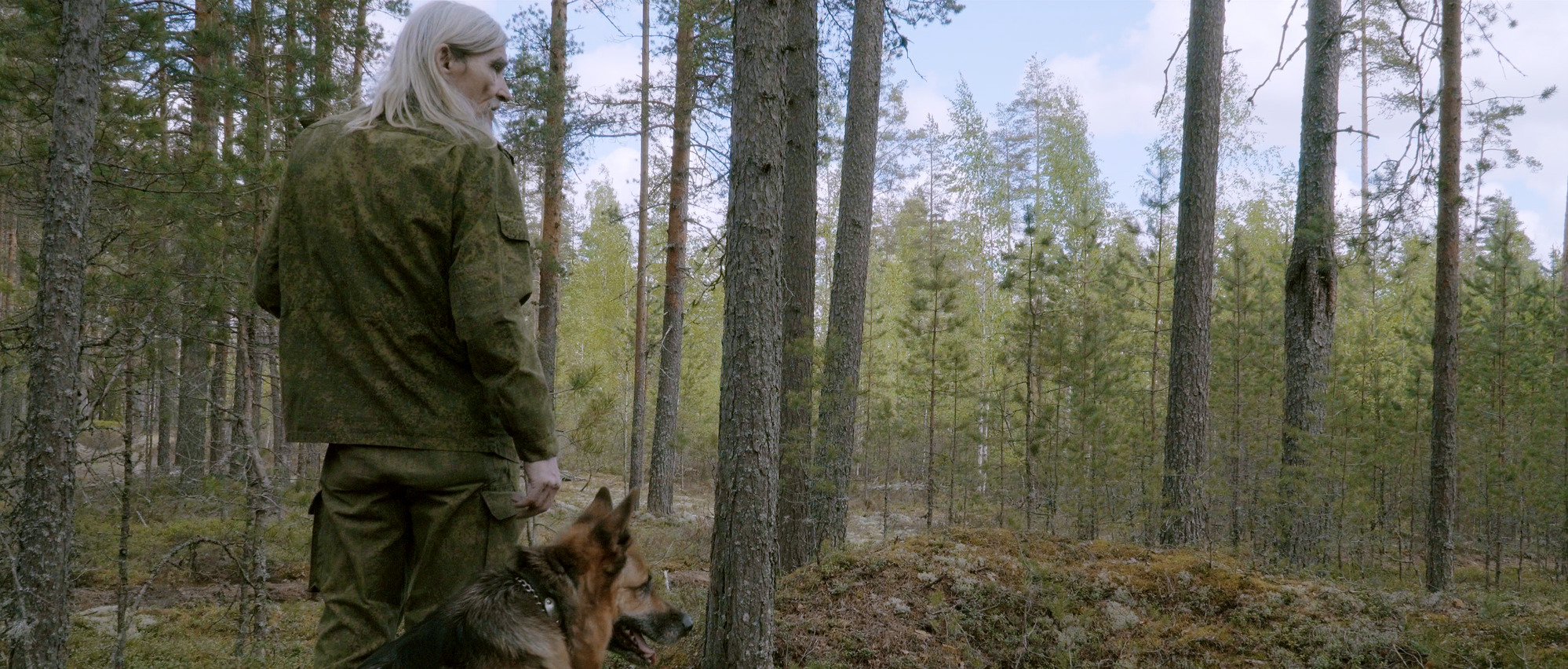


Jessica Gorter: The Dmitriev Affair

Dutch documentarian Jessica Gorter continues to make films from Russia (“Red Soul” last one I saw, before that one from the Leningrad Blockade) with strong content – and actuality. This one is about Yury Dmitriev, awarded human rights activist, working with the Karelian part of the NGO Memorial (now forbidden), that looked into the crimes of the past, including of course the terror during Stalin. Dmitriev puts the focus on the forest of Sandarmorkh in Karelia, where thousands were executed and dropped in mass graves in 1937/38. His aim was to have the remains of the corpses up to be identified by their failies and to publish, with his friend, The Book of Remembrance.
The film starts with him, his daughter Natasha and their dog walking in the forest searching for pits, cut to an interview with him in his flat in Petrozavodsk, with a fast forward to him being imprisoned the first time but not the last. In the interview he talks about, how he adopted Natasha as the wife did not like to be with him and simply disliked Natasha. Archive from the Stalin trials is included when he talks about his mission.The Secret Service made good quality footage as we also know from the film of Loznitsa.
And then the film takes a completely different turn. On the computer of Dmitriev nude photos of Natasha appear and he is accused of child pornography, abusing the adopted child. He says he took the photos for medical reason upon requests of doctors as the girl had physical growing problems and should be observed by doctors. He is acquitted as there is no evidence. During his imprisonment Natasha was placed at her grandmother writing/drawing letters to her father.
Gorter follows what happens, it seems like she has joined the family, that also includes Yury’s oldest daughter Katya and her children. Katya blames her father to speak too openly to the media that follows him closely – there are in the film several tv clips that serve to illustrate how the regime wants to change, what happened in Sandarmorkh: No, it had (almost) nothing to do with Stalin and his horror, actually the forest was a Finnish concentration camp, it was said, where Russian victims were buried. Unbelievable! Re-writing of history Putin-wise!
… and alas rewriting of Yury’s story: The court case is re-opened with charges from the prosecutor via the grandmother. On Yury having sexually misused Natasha and being violent against her. He is now in a Gulag-like camp like the ones he and Memorial had been investigating!
It’s an impressive work Jessica Gorter has done. As written she has been close to the family, she is there, when something “happens” but not only, she is also there when nothing happens in daily matters, and when phone calls between Katya and her father take place, towards the end, when she has to make the beloved dog’s long life end. The position of the filmmaker is clear – the end photo is one of Yury, Natasha and the dog in the forest filmed from the back. Gorter demonstrates a safe dramaturgical take on how the story is built.
The Netherlands, 2023, 93 mins.